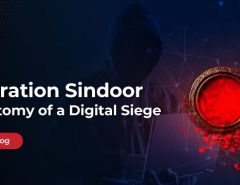Over the last decade or so, it has become increasingly obvious that cybersecurity is no longer just a local issue. As the world has leaped into a digital era with communication in the blink of an eye and the click of a mouse, cybersecurity has gone beyond borders. It is now a truly global phenomenon and often used as a tool of warfare by entire nations, whether it is influencing elections in an enemy state, infiltrating power grids or maintaining entire cyber armies. The term “cyber warfare” has become even more pronounced and countries have woken up to the need to maintain international agreements to combat this growing scourge.
In many ways, cybersecurity agreements and alliances work in many ways to the cooperation treaties which different nations sign between themselves. In a pact touted as the first of its kind in 2013, the United States and Russia signed an agreement promising to work together against cyber threats. Later in 2015, cybersecurity also played an important part in a US agreement with China where both nations agreed not to “conduct or knowingly support cyber-enabled theft of intellectual property, including trade secrets or other confidential business information, with the intent of providing competitive advantages to companies or commercial sectors.”
These are just a few examples and the politics of cybersecurity agreements are a completely different topic which has its own repercussions. However, with more and more nations trying to cooperate with each other on this thorny topic, it is an important reminder of how no nation can single-handedly take on this battle.
The lack of an international regulator
Unlike other criminals, cyber criminals do not act in full view – they are shadowy characters and most of the times, it’s not even clear who the perpetrators are. The lack of an international cybersecurity regulatory body is actually a huge emboldening factor since most countries still look at cybersecurity as a national problem, rather than an international one. Unfortunately, cyber crime occurs across borders and without any international agreements, this is bound to continue
A lack of information sharing
While enterprises are beginning to understand that many cyber attacks can often be prevented by proper monitoring and trends analysis, this is a trend which nations are still slow to wake up to. Part of the reason is nations may often be suspicious of sharing information, especially if it is confidential, to other nations, even allies. However, in many cases, such information sharing could be critical to prevent attacks like WannaCry or NoPetya which spread across multiple countries and multiple states in a short period of time.
More cooperation
When it comes to the world, there seems to be more disagreement rather than agreement when it comes to cybersecurity. Nations keep on flicking accusations at each other over cyber warfare – the US continues to regard China, Russia and Iran with suspicion with the feelings mutually reciprocated. Nations who are opposed to each other often use the cyber platforms as a proxy war to inflict damage on each other.
That is why international agreements are the need of the hour. Some kind of consensus would lead to a spirit of cooperation and might lead to better and safer understanding about the cybersecurity problems the world at a large faces.
Saving the world from disaster
This may seem like scare-mongering but the likelihood of it is always present. The number of cybersecurity incidents is only increasing and their repercussions are only growing. It only takes a small spark – say, a cyber attack on a military base or an attack on a town’s municipal facilities – for repercussions to migrate from a digital world to reality. The last thing the world needs is prolonged military conflict but unless there are more agreements between nations about bolstering their respective cybersecurity defenses, the prospect always remains in the air.
As an IT security partner for your business, Seqrite provides comprehensive security from advanced cyber threats. To know more




